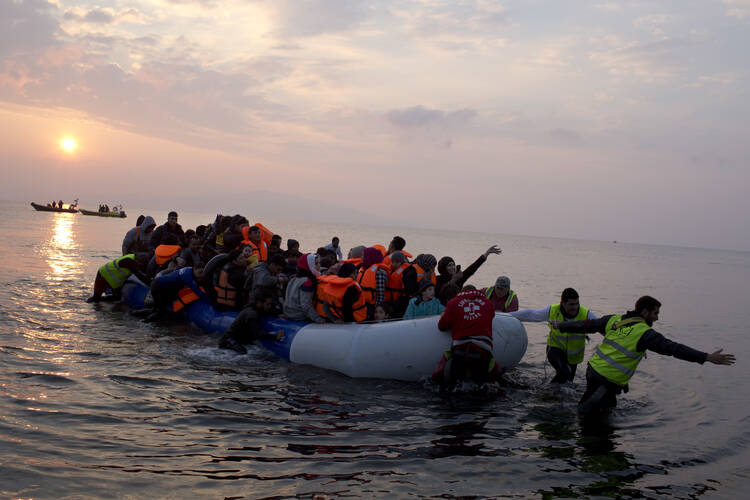Concern is growing over several hundred children, all minors, stranded and unaccompanied in “the Jungle” refugee camp in Calais, northern France and the U.K. government’s slow response to the crisis. The activist group Citizens UK estimates their number at around 800, of whom around half, according to the immigrant advocates, are immediately eligible to complete their journey to Great Britain.
On the first anniversary of the death of Alan Kurdi, the 3-year-old boy who was found drowned on a Turkish beach on Sept. 2, 2015, campaigners pressured Britain’s Home Office, the government department responsible for security and migration policy, to accept these children, regardless of any changes to freedom of movement brought about by Brexit negotiations. Almost 200 of these children have immediate family already in Britain while another 200 qualify under specific provisions, although the campaigners, citing moral rather than legal obligations, are demanding the immediate acceptance of every single child.
The tragic pictures of Alan’s lifeless body, in the arms of a young Turkish police officer, were believed to have shocked Europe and the world into action, but even those heart-rending pictures have faded from most memories. There is a refugee crisis—present tense—and there is a repetition, indeed a worsening of last summer’s seaborne tragedy, whether or not the media cover it. The United Nations reports that the anniversary of Alan’s death marks 2016 as the “deadliest year so far for refugees in the Central Mediterranean.”
When the European Union and Turkey struck a controversial deal to close down the refugee route through the Balkans, the people-smugglers began re-routing refugees from the Middle East toward Libya. There, they join migrants from further south in Africa, intent on the same journey. Only last week, as many as 13,000 refugees were rescued from the Mediterranean off the Libyan coast.
Several church groups, including from Catholic parishes in the dioceses of southeast England, have crossed the Channel into France on missions to assist the suffering refugees there. The “Jungle” situation was big news a year ago but has faded from headlines since, even as the suffering has increased. According to the Citizens UK group, at least 7,000 people are still stuck in Calais’s “Jungle” camp, with little hope and nowhere to go, living in conditions no better than one year ago when they were in the news. Last week a group of faith leaders, including the Rector of Farm Street Jesuit church and community in central London, Dominic Robinson, S.J., visited the camp.
Later they joined several hundred campaigners, including actors Vanessa Redgrave, Juliet Stevenson and Ann Mitchell and other figures from the arts and the media, at a protest event outside the Home Office to press for an immediate intervention on behalf of almost 400 of the children. Father Robinson, speaking after the event, said, “This is not a religious or political issue; it is a human tragedy, but one which, with determination, we can do something about."
Anglican Bishop Peter Hill appealed to government ministers “to look into their hearts and take immediate action to bring these children to safety.”
One speaker, Labour peer Lord Dubs, who was himself one of the Kindertransport children rescued from Nazi fascism in World War II, pointed out that these children are vulnerable, among other dangers, to trafficking, prostitution and criminality.
Further back on the refugee route, there have been new and disturbing developments on the high seas, as reports emerged that a Libyan navy warship had fired on rescue-vessels. A boat belonging to the Médecins Sans Frontières (M.S.F.), a humanitarian organization that delivers emergency aid, was the target of live fire. The Libyans took responsibility, claiming that they had been legitimately looking for petrol smugglers. In an earlier incident they claimed to be on the trail of an illegal fishing operation.
Many of the rescue-vessels are operated by NGOs and refugee charities, which are considerably alarmed by these dangerous new circumstances. Brussels has just authorized armed intervention against such attacks, as European warships, including the British Royal Navy frigate H.M.S. Diamond, move into the area. Médecins Sans Frontièresis one of several groups to express concern over continuing rescue operations as the risk grows of becoming caught in the crossfire of a serious firefight.
David Stewart, S.J., is America’s London correspondent.








